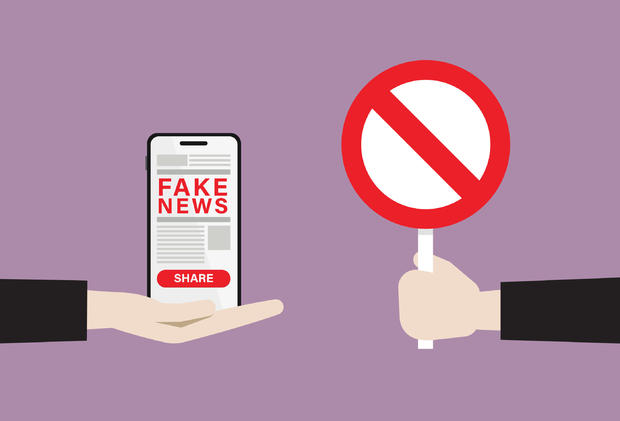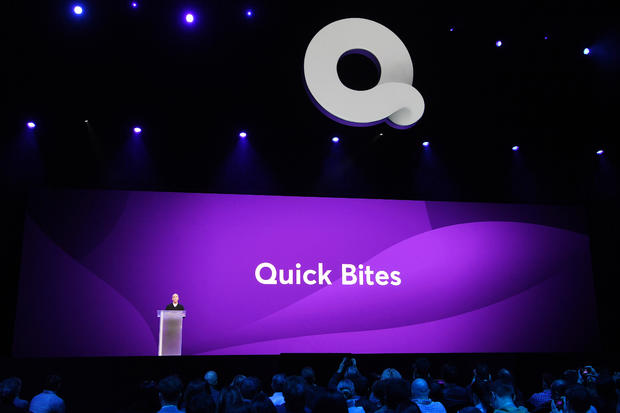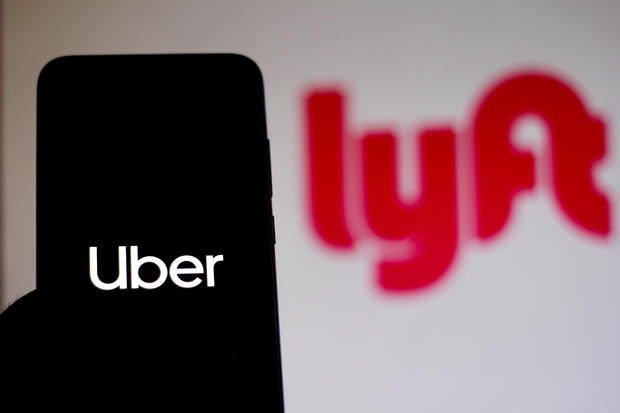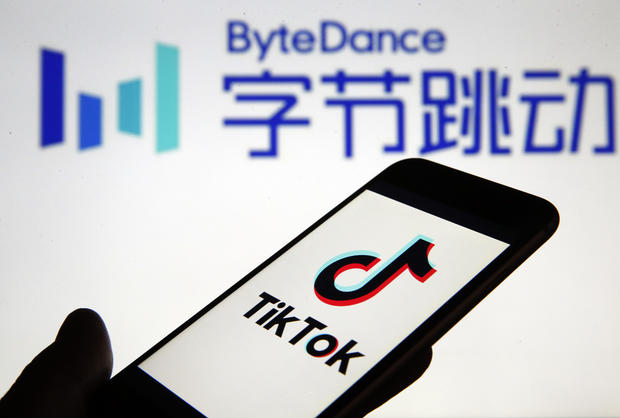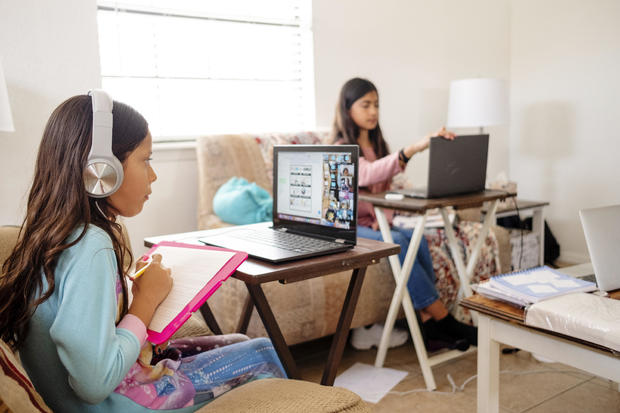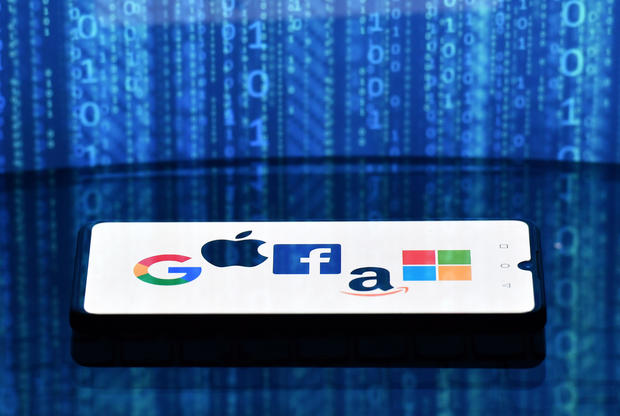A look back at the big wins and fails in technology in 2020
We streamed, we Zoomed, we ordered groceries and houseplants online, we created virtual villages while navigating laptop shortages to work and learn from home. In many ways, 2020′s pandemic-induced isolation threw our dependence on technology into overdrive, snipping away at our real-life connections while bringing digital relationships to the fore.
But for every life-changing Zoom, there was at least one soon-forgotten Quibi. Here's a look at the year's tech wins and fails.
Fails:
Virtual Reality
As the world adjusted to a new stuck-at-home reality, the pandemic could have been virtual reality's chance to offer an escape. With the use of special headsets and accouterments like gloves, the technology lets people interact with a 360-degree view of a three-dimensional environment, seemingly a good fit for people stuck indoors.
But people instead turned to easier-to-use software and games they already had. Few rushed to spend hundreds of dollars on a clunky new headset or learn the ropes of virtual reality meeting software. And no VR games broke into the mainstream. So virtual reality, on the verge of success for decades, missed its moment — again.
Social media warning labels
It was the year of warning labels on Facebook, Twitter, YouTube and even TikTok. Ahead of the U.S. presidential election, the social media platforms promised to clamp down on voting misinformation, including baseless charges of fraud and candidates' premature declarations of victory. Their most visible strategy toward this effort was the bevy of warning labels applied to tweets, posts, photos and videos of dubious merit.
"Some or all of the content shared in this Tweet is disputed and might be misleading about an election or other civic process," read one typical label applied to a tweet by President Donald Trump.
But many experts said that while the labels made it appear that the companies were taking action, "at the end of the day it proved to be pretty ineffective," as Jennifer Grygiel a professor at Syracuse University and social media expert, put it.
Quibi
Less than a year ago, Quibi launched a splashy Super Bowl ad that posed the question "What's a Quibi?" People may still be scratching their heads.
Quibi, a portmanteau for "quick bites," was a short-form video streaming app started by Hollywood producer Jeffrey Katzenberg and Meg Whitman, former CEO of Hewlett Packard Enterprise. The startup had set its expectations high, raising $1.75 billion from investors including major Hollywood players Disney, NBCUniversal and ViacomCBS.
But the paid service struggled to reach viewers, even as the coronavirus pandemic kept many people at home. Perhaps the aspirational startup never stood a chance against such formidable competitors as the Chinese-owned video-sharing app TikTok, and YouTube, both of which are free. Quibi announced it was shutting down in October, just six months after its launch.
Uber and Lyft
Fresh off their initial public offerings the year before and still struggling to show they can be profitable, the ride-hailing services were clobbered by the pandemic in 2020, as people stopped taking cars and huddled down at home.
In May, Uber laid off 3,700 people, or about 14% of its workforce. Lyft also announced job cuts.
But there are some signs of hope. After significantly reducing costs by restructuring in the second quarter, Lyft said last month it expects to have its first profitable quarter at the end of 2021. And the companies scored a major victory in California, where voters passed Proposition 22, granting them and others an exception to a law that sought to classify their drivers as employees, an expense that analysts thought would have pummeled their business in the nation's most populous state.
U.S. TikTok ban
While India outlawed the popular video-sharing app, in the U.S., TikTok appears close to riding out Mr. Trump's term without the president succeeding in his efforts to ban it.
Earlier this month, a federal judge blocked a potential ban. It was the latest legal defeat for the administration in its efforts to wrest the app from its Chinese owners. In October, another federal judge postponed a shutdown scheduled for November.
Meanwhile, a government deadline for TikTok's parent, ByteDance to complete a deal that would have Oracle and Walmart invest in TikTok has also passed, with the status of the deal unclear.
While President-elect Joe Biden has said TikTok is a concern, it's not clear if his administration will carry on the Trump administration's attempts at a ban.
Wins:
Nintendo Switch
In a year heralding splashy new consoles from Xbox and PlayStation, the Nintendo Switch was the console that could. Launched in 2017, the Switch became a fast-seller, followed by the game console's handheld version, the Switch Lite, launched in September 2019.
In March, it became hard to find a Switch as people searched for ways to be entertained at home. Boosting Switch's popularity to a whole new level was the release of the island-simulation game "Animal Crossing: New Horizons," which debuted March 20 and has now sold a cumulative 26 million units globally, according to Nintendo.
According to the NPD Group, during the first 11 months of 2020, the Nintendo Switch sold 6.92 million units in the U.S. It has been the best-selling console in units sold for a record 24 consecutive months.
Zoom
While all video-conferencing software from Microsoft Teams to WebEx thrived during the abrupt shift to remote working and schooling by tens of millions of people during the pandemic, only one brand has become the new word for "video-conference."
Zoom Video Communications was a relatively unheralded company before the pandemic hit, but its video-conference software's ease of use led to its wide adoption during the pandemic. There were some growing pains, including lax security early on that led to "Zoom bombing" breaches. The company has since revamped its security and remains one of the most popular platforms for hosting remote meetings and classes.
Ransomware purveyors
The ransomware scourge — in which criminals hold data hostage by scrambling it until victims pay up — reached epic proportions in 2020, dovetailing terribly with the COVID-19 pandemic. In Germany, a patient, who was turned away from the emergency room of a hospital because its IT system was paralyzed by a cyberattack, died on the way to another hospital.
In the U.S., the number of attacks on health care facilities this year was nearly double the 50 that occurred in 2019. Attacks on state and local governments were up about 50% to more than 150. Even grammar schools have been hit, resulting in shutdowns in remote learning for students from Baltimore to Las Vegas.
Cybersecurity firm Emsisoft estimates the cost of ransomware attacks in the U.S. alone this year totaled more than $9 billion between ransoms paid and downtime/recovery.
PC makers
After beginning the year grappling with delays in their supply chains, the personal computer industry found itself scrambling to keep up with a surge in demand for machines that suddenly became indispensable amid a pandemic that kept millions of workers and students at home.
Worsened by the pandemic, the supply chain delays stymied production as overseas factories were forced to shut down during the early stages of the health crisis. Those closures contributed to a steep decline in sales during the first three months of the year, but the PC market recovered by the end of Q2. It's been boom times for the PC ever since.
The July-September period was particularly robust, with PC shipments in the U.S. surging 11% from the same time in 2019 — the industry's biggest quarterly sales increase in a decade, according to the research firm Gartner.
E-commerce
The biggest of the bunch, Amazon, is one of the few companies that has thrived every moment throughout the coronavirus outbreak. People have turned to it early on to order groceries, supplies and other items online, helping the company bring in record revenue and profits between April and June — despite its having to spend $4 billion on cleaning supplies and to pay workers overtime and bonuses.
But it's not just Amazon. The pandemic is accelerating the move to online shopping, a trend experts expect to say even after vaccines allow the world to resume normal lives. And thanks in part to shoppers consciously supporting small businesses, Adobe Analytics said online sales at smaller U.S. retailers were up 349% on Thanksgiving and Black Friday. At the more than 1 million businesses that use Shopify to build their websites, sales rose 75% from a year ago to $2.4 billion on Black Friday, according to Shopify.
JURY'S OUT:
Big Tech
Without a doubt, Facebook, Amazon, Apple and Google did well financially in 2020. Each company's stock price and profits are up considerably since the start of the year. They've gained users, rolled out new products and features and have kept on hiring even as other companies and industries faced significant cuts.
But not all is well in the world of Big Tech, and those big profits are part of the problem. Regulators have been breathing down the necks of Big Tech's richest foursome throughout the year — and that's not likely to ease up in 2021. Google faces an antitrust lawsuit from the Department of Justice; and Facebook has been hit with a suit from the Federal Trade Commission, along with nearly every U.S. state that seeks to have it split off from WhatsApp and Instagram.
More legal cases could follow. Congressional investigators spent months digging into the actions of Apple and Amazon in addition to Facebook and Google, and called the CEOs of all four companies to testify.

